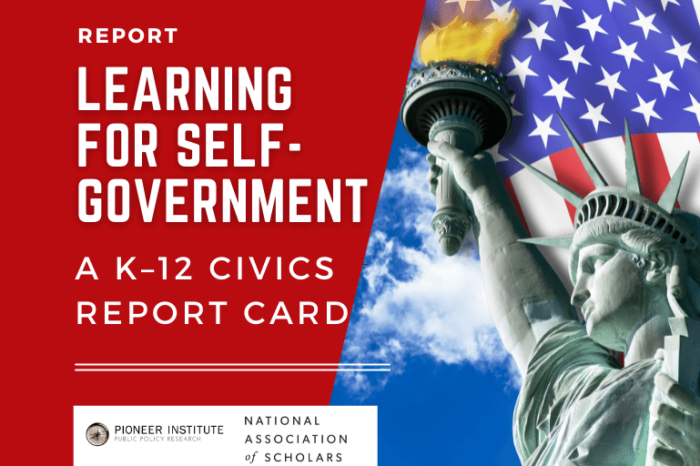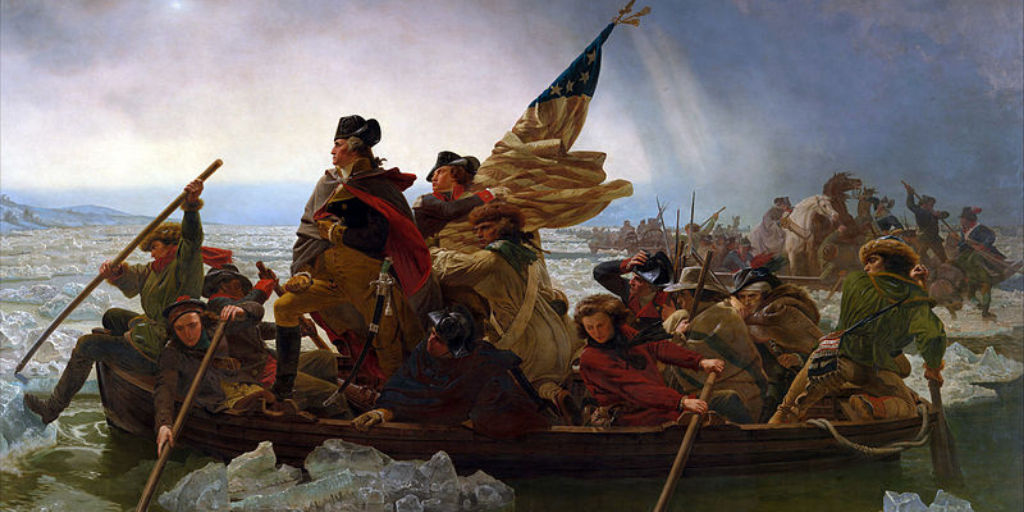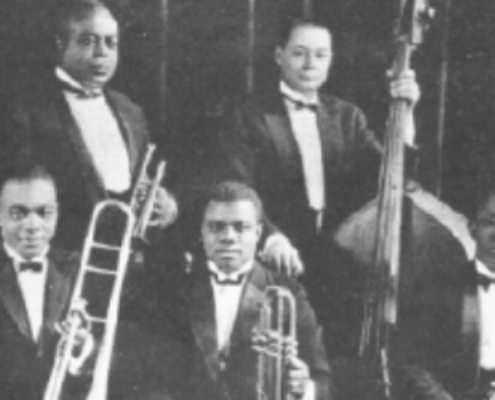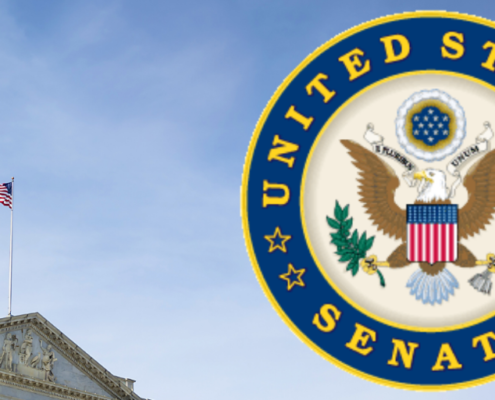New Study Shows What Works for Civics Education
Reviews and grades the country’s top programs
BOSTON – Americans strongly disagree about how our K-12 schools should teach our system of self-government. Dozens of organizations offer rival civics education resources and many of them don’t work. A new study published jointly by Pioneer Institute and the National Association of Scholars offers in-depth evaluations of 15 leading civics programs, grades them on their effectiveness, and offers recommendations for how Americans should build upon these programs.
“Civics reformers don’t need to reinvent the wheel,” said Dr. David Randall, author of “Learning for Self-Government: A K–12 Civics Report Card.” “They can draw on programs such as Hillsdale College’s 1776 Curriculum; We the People: Citizen and Constitution; and Gilder Lehrman Institute of American History, which provide lesson plans aimed for academically serious, curious 12th-grade students.”
Americans are sharply divided about how civics should be taught to our students. Dozens of novel instructional approaches have emerged from these conflicts.
“Learning for Self-Government” surveys and assesses a wide selection of traditional and progressive K-12 civics education offerings. The report discusses programs developed by organizations such as the Jonathan M. Tisch College of Civic Life, We the People, and 1776 Unites. The study evaluates both their approach to civics education and their ideological content.
The study offers summary grades of each organization’s effectiveness and recommends concrete ways for civics reformers to use existing civics resources effectively to reclaim American civics education.
“Learning for Self-Government” finds that several organizations, such as the Jonathan M. Tisch College of Civic Life and Educating for American Democracy, focus on political activism rather than K-12 civics education.
“These organizations form the regulations and develop the personnel of the educational establishment,” Randall said. “They greatly affect K–12 civics education, even though they don’t provide textbooks and lesson plans.”
“In 2021, the American people and parents across the country awoke to the longstanding crisis in K-12 civics education,” said Pioneer Director of School Reform Jamie Gass. “‘Learning for Self-Government’ will tell policymakers and parents which civics organizations replace civics education with radical activism, which actually try to educate students about their country’s government and history, and how they can build upon existing programs to restore great civics education in our nation.”
About the Author
David Randall is Director of Research at the National Association of Scholars and Project Director of the Civics Alliance. His publications include Making Citizens: How American Universities Teach Civics (NAS, 2017) and (co-author) No Longer a City on a Hill: Massachusetts Degrades Its K-12 History Standards (Pioneer Institute, 2018).
About Pioneer Institute
Pioneer’s mission is to develop and communicate dynamic ideas that advance prosperity and a vibrant civic life in Massachusetts and beyond. Pioneer’s vision of success is a state and nation where our people can prosper and our society thrive because we enjoy world-class options in education, healthcare, transportation and economic opportunity, and where our government is limited, accountable and transparent. Pioneer values an America where our citizenry is well-educated and willing to test our beliefs based on facts and the free exchange of ideas, and committed to liberty, personal responsibility, and free enterprise.
About National Association of Scholars
The National Association of Scholars seeks to reform higher education by upholding the standards of a liberal arts education that fosters intellectual freedom, searches for the truth, and promotes virtuous citizenship. It defends the academic freedom of faculty members, students, and others through individual advocacy; investigates issues affecting academic freedom, the integrity, purpose, and neutrality of the university and publishes its findings as in-depth reports; and educates the public about policies and legislation that would preserve the liberal arts and protect academic freedom.
Get Updates On Our US History Initiative
WATCH:
Related Posts













